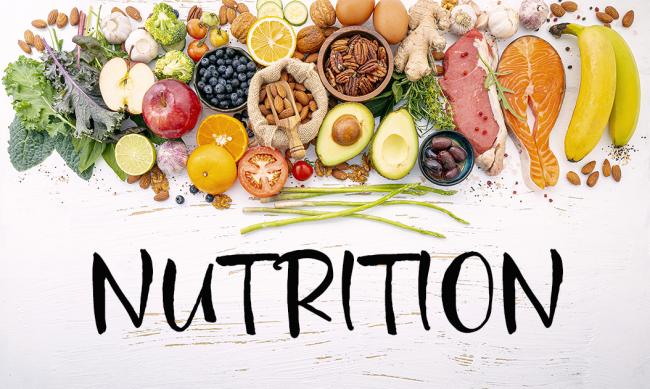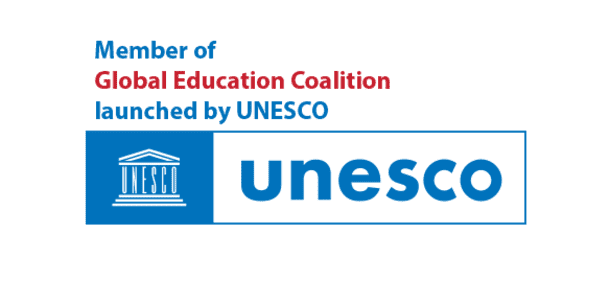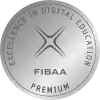
Introduction to Nutrition
The Introduction to Nutrition course provides an overview of the fundamental concepts related to nutrition, focusing on understanding the role of nutrients in human health and well-being. It covers topics such as macronutrients, micronutrients, dietary guidelines, and the impact of nutrition on various aspects of health and disease prevention.
Overview

Introduction to Nutrition
Course Learning Outcomes (CLOs) and SLOs
Course Learning Outcomes (CLOs) typically include: Nutrient Basics: Gain knowledge of essential nutrients—carbohydrates, proteins, fats, vitamins, and minerals—and their roles in the body's functions. Dietary Guidelines: Understand dietary guidelines and recommendations for maintaining a balanced diet that supports overall health and prevents nutritional deficiencies. Nutrition and Disease: Explore the relationship between nutrition and common chronic diseases such as obesity, diabetes, cardiovascular diseases, and cancer. Food Labeling and Analysis: Learn to interpret food labels and analyze nutritional content to make informed dietary choices. Student Learning Outcomes (SLOs) are specific goals for students, such as: Nutritional Assessment: Assess personal dietary habits and nutritional status using tools and methods discussed in the course. Meal Planning: Develop skills in planning well-balanced meals and snacks that meet individual nutritional needs and preferences. Health Promotion: Promote health and wellness through evidence-based nutrition recommendations and practices. Critical Thinking: Evaluate nutrition-related information and claims critically, distinguishing between evidence-based knowledge and myths.

Benefits
With AI, the world is your oyster! It is an emerging field, rapidly growing, ever evolving and watched with a keen eye by industries and markets globally. There are many benefits to an education in AI:
In demand Career
With a Bachelor in artificial intelligence you are equipped with in-demand skills in the rapidly growing field of AI. Knowledge of developing AI systems, data analysis and AI techniques makes you valuable across industries, right from healthcare, finance, tech and more. This degree prepares you for career that has multiple options for diversification. AI professionals include AI engineers, data scientists, machine learning specialists, AI consultants, researchers and more. AI is transformative technology that is revolutionising the world. With an education background in AI, you are set up in an in-demand career field with an exciting future ahead!
Innovation and advancement
Applied AI is all about finding solutions and using AI systems to make life simpler. Applied AI draws on its solid foundation in Computer Science to analyse and provide solutions for real world challenges. You are prepared to address complex problems and contribute meaningfully in domains like healthcare diagnostics, fraud detection, autonomous vehicles, personalised recommendations and more. Being able to apply AI techniques for solving tasks makes for an extremely rewarding and impactful job role!
Solving real world problems
AI aims to constantly bridge the gap between natural intelligence and machine learning - it is a field of cutting edge research, innovation and advancing technology. This makes it ever evolving, with new algorithms, models and techniques being developed. By studying AI at an undergraduate level, you gain a strong foundation in AI fundamentals that help you better understand the latest advancements. You step into a career that empowers you to push the boundaries of AI, contribute to research and development and drive innovation in the field.
100% International
Study at your own pace from anywhere in the world
Recommended by 96% of our graduates
According to our latest alumni survey
50,000+ students
enrolled in Germany’s largest university
Study contents
Contents
What is Nutrition? Definition of nutrition and its importance in overall health Brief overview of the history of nutrition and how it has evolved over time Why is Nutrition Important? Importance of nutrition in maintaining overall health and well-being How nutrition affects energy levels, mood, and cognitive function Prevention and management of chronic diseases through nutrition The Science of Nutrition Overview of the major nutrients: carbohydrates, proteins, fats, vitamins, and minerals How the body uses these nutrients for energy, growth, and maintenance The role of macronutrients and micronutrients in the body Nutrition and Health How a balanced diet can help prevent chronic diseases such as heart disease, diabetes, and certain cancers The impact of malnutrition on health and well-being The role of nutrition in promoting healthy weight management Types of Diets Overview of different types of diets: omnivore, vegetarian, vegan, gluten-free, etc. The benefits and drawbacks of each type of diet How to choose a diet that is right for you Nutrition Labels and Portion Control How to read food labels and understand nutrition information The importance of portion control in maintaining a healthy diet Tips for healthy eating on-the-go Key Concepts in Nutrition Calorie needs and how to determine your daily calorie needs Macronutrient ratios: carbohydrates, proteins, and fats Hydration and its importance in overall health Putting it all Together Tips for planning a balanced diet How to create a personalized meal plan Common mistakes to avoid in nutrition
Admission
Admission Criteria
Here are some possible admission requirements for an "Introduction to Nutrition" course: High School Prerequisites: Typically, a high school diploma or equivalent is required for admission to an "Introduction to Nutrition" course. Some colleges or universities may also require students to have completed a basic science course, such as biology or chemistry. Academic Requirements: A minimum GPA of 2.0 or higher (varies by institution) A minimum grade of C- or better in high school science courses (biology, chemistry, etc.) Completion of high school algebra or math requirements Additional Requirements: Some colleges or universities may require students to provide proof of vaccination against certain diseases, such as Hepatitis B. Some programs may also require a background check or a physical examination. Students with a criminal record may not be eligible for certain clinical or internship experiences. International Students: International students must demonstrate proficiency in English language skills and provide proof of adequate financial support. Students from countries with different academic systems may need to provide additional documentation, such as a credential evaluation. Program-Specific Requirements: Some colleges or universities may have specific requirements for students applying to a specific program within the nutrition department, such as a dietetics program. Students applying to these programs may need to provide additional documentation, such as letters of recommendation, personal statements, or writing samples. Online or Distance Learning Options: For online or distance learning programs, students typically need a reliable computer and internet connection. Some programs may also require specific software or hardware requirements. Application Process: The application process typically involves submitting an online application form, along with supporting documents, such as transcripts, test scores, and letters of recommendation. Some programs may require an interview or audition as part of the application process. Timeline: The application deadline for "Introduction to Nutrition" courses is usually several weeks before the start of the semester. International students may need to apply earlier due to visa requirements and processing times.
Careers
Career Path
Registered Dietitian (RD): A registered dietitian is a healthcare professional who specializes in the prevention, diagnosis, and treatment of dietary-related health problems. They work with patients to develop personalized nutrition plans to improve their overall health. Nutritionist: A nutritionist is similar to a registered dietitian, but they may not have the same level of education or certification. They may work in private practice, hospitals, or community health organizations. Food Scientist: Food scientists study the physical, chemical, and biological properties of food to ensure it is safe for consumption. They may work in food manufacturing, research, or government agencies. Food Safety Inspector: Food safety inspectors ensure that food is handled, processed, and stored safely to prevent contamination and foodborne illness. Public Health Nutritionist: Public health nutritionists work to prevent chronic diseases by promoting healthy eating habits and developing nutrition programs for communities. Health Educator: Health educators teach people about healthy eating habits, disease prevention, and wellness strategies. Wellness Coach: Wellness coaches help individuals set and achieve their health goals, including developing healthy eating habits and exercise routines. Food Blogger/Influencer: Food bloggers and influencers create content around food and nutrition, sharing recipes, cooking tips, and product reviews with their audience. Recipe Developer: Recipe developers create new recipes for cookbooks, food companies, or online platforms. Nutrition Educator for Companies: Some companies hire nutrition educators to educate employees about healthy eating and wellness in the workplace. Researcher: Researchers in nutrition study the effects of different diets and nutrients on human health, developing new knowledge and evidence-based practices. Policy Analyst: Policy analysts work with government agencies, non-profit organizations, or private companies to develop policies related to food systems, agriculture, and public health. Nutrition Consultant: Nutrition consultants work with individuals or businesses to develop personalized nutrition plans or provide expertise on food-related issues. Sustainability Specialist: Sustainability specialists work with food companies or governments to develop sustainable agriculture practices, reduce food waste, and promote environmentally friendly food systems. Academic/Professor: As an academic or professor in nutrition, you can teach at a university or college level, conduct research, and publish scholarly articles.
Student reviews
Coming Soon.
Tuition fees
All our study programmes include the following benefits
- Teaching and study material
- Marking of your end-of-module exams
- Monthly live and recorded tutorials
- Use of the online campus
- Individual study coaching
- Online exams
- Career coaching
- Learn English for free
Our global recognition

IU is recognised by WES Canada and U.S., which means your degree can be converted to points in the local system for purposes of immigration, work, or studies.

As the first EU institution in UNESCO's Global Education Coalition, IU is committed to ensuring accessible quality education to students in crisis worldwide through free online micro-credentials.
Our company partners

For over 20 years, IU has established partnerships with leading global companies. This offers you the chance to gain firsthand experience through internships and projects and allow us to adapt our learning content to the ever-evolving needs of the labour market. You'll benefit from an education designed to bridge the gap between theory and real-world practice, ensuring your readiness for your future career.
Recognition
Recognition of previous achievements
Have you already completed a training course, studied at a university or gained work experience? Have you completed a course or a learning path through EPIBM LinkedIn Learning, and earned a certificate? Then you have the opportunity to get your previous achievements recognised, and complete your studies at EPIBM sooner.

Save time:
Skip individual modules or whole semesters!
Even before you apply for a study programme, we’ll gladly check whether we can take your previous achievements into account: 100% online, no strings attached. Simply fill in our recognition application form, which you can find under the content section of each study programme's webpage, and upload it via our upload section. You can also e-mail it to us, or send it via post.
Send an email to [email protected] to find out which previous achievements you can get recognised. You can get your previous achievements recognised during your studies.
Recognition files
Autonomous vehicles developer
With AI, the world is your oyster! It is an emerging field, rapidly growing, ever evolving and watched with a keen eye by industries and markets globally. There are many benefits to an education in AI:
That’s why after graduating, you’ll be able to apply your professional skills and knowledge, and work for development teams at any sector you find appealing.


Augmented reality (AR/VR) developer
Virtual (or augmented) reality isn’t all just fun and games, as great and enjoyable as that aspect is. It can also be used for groundbreaking social and psychological research, defensive purposes and therapy.
With an Applied Artificial Intelligence degree from IU University of Applied Sciences, you can take part in this vital field of technological development, and work on a wide variety of interesting projects.
Change what the world thinks about the possibilities that AI offers, and make a real difference in people’s lives, while enjoying every step of the process.
F.A.Q
Frequently Asked Questions
You might also be interested in these study programmes
Accredited and certified













